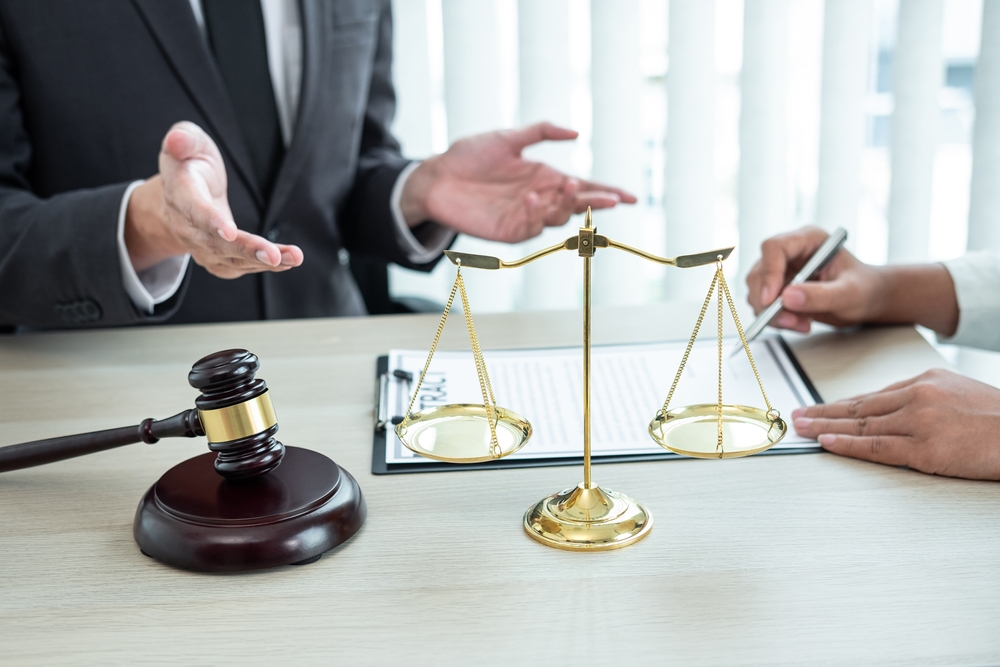When someone suffers a brain injury in Chicago, the road to recovery can involve months—or even years—of medical treatment, therapy, and lifestyle adjustments. A Chicago brain injury lawyer at Abels & Annes, P.C. helps injury victims hold the negligent parties accountable and pursue financial support for treatment, lost income, and changes to daily life. Our team knows what’s at stake and focuses on building strong claims to help clients move forward with security and support.
We handle a wide range of brain injury claims, including those caused by vehicle crashes, falls, and assaults. We work directly with your medical providers and fight back when insurers try to downplay the harm you’ve experienced. If you're dealing with the aftermath of a head injury, don’t wait. Contact us for a free consultation to discuss your legal options.
FREE CONSULTATION 24/7What Are the Common Causes of Brain Injuries in Chicago?

Brain injuries happen all over the city, from Lakeview to the Loop, and they often result from everyday situations that suddenly take a dangerous turn. Understanding how these injuries happen helps reveal where fault may lie and who should be held responsible.
Motor Vehicle Accidents
From the Kennedy Expressway to Lake Shore Drive, Chicago's streets see thousands of crashes every year. Head trauma in car, truck, motorcycle, rideshare, bus, and taxi accidents often stems from sudden impacts that jolt or strike the skull. Brain injuries can occur even in collisions that don’t seem severe at first.
Pedestrian and Bicycle Accidents
Whether crossing Michigan Avenue or biking through Humboldt Park, pedestrians and cyclists have little protection when struck by vehicles. Helmets help, but they can’t always prevent concussions or more serious trauma when a car fails to yield or a driver is distracted.
Slip and Fall, Trip and Fall Accidents
Uneven sidewalks in Uptown, wet floors in River North restaurants, or poorly lit stairwells in apartment buildings—these are just a few examples of hazards that can lead to falls. A sudden blow to the head on a hard surface may result in lasting brain trauma.
Sexual Abuse
Sexual violence often results in physical as well as emotional injuries. In some cases, survivors suffer brain trauma from blunt force to the head or asphyxiation-related oxygen deprivation. These claims deserve thorough legal attention and compassionate representation.
Types of Brain Injuries We Handle
Brain injuries vary widely in severity and cause. Our attorneys handle a full range of cases, from temporary conditions to life-altering trauma.
Traumatic Brain Injuries (TBI)
A TBI usually results from a blow or jolt to the head that disrupts brain function. Falls and vehicle crashes commonly cause TBIs, which can range from mild to severe. Some people recover fully, while others face permanent changes in cognition or behavior.
Concussions and Post-Concussion Syndrome
Even a mild concussion can affect memory, mood, and concentration. When symptoms persist for weeks or months, doctors may diagnose post-concussion syndrome. This condition can affect work, relationships, and daily tasks long after the initial incident.
Acquired Brain Injuries
These injuries aren’t caused by external trauma but develop due to medical conditions like oxygen deprivation, stroke, or infection. For example, someone denied timely care after an accident may suffer an anoxic brain injury that could have been prevented.
Penetrating Brain Injuries
Penetrating injuries involve a foreign object entering the skull and damaging brain tissue. These injuries often occur in violent attacks, gun-related incidents, or catastrophic accidents. They usually require emergency surgery and extensive follow-up care.
How Can You Recognize the Signs of a Brain Injury?

Brain injuries don’t always show up immediately. Some people walk away from an accident only to experience symptoms days later. Paying attention to how the body and mind respond after trauma is key.
Immediate Symptoms Following an Accident
Right after the incident, symptoms might include confusion, loss of consciousness, dizziness, nausea, blurred vision, or slurred speech. Seizures, bleeding from the ears or nose, or a clear fluid leak from the head require urgent medical care.
Delayed Signs That Require Medical Attention
In the days following an injury, victims might notice memory problems, mood swings, sensitivity to light or sound, trouble sleeping, or persistent headaches. These signs suggest that the brain is still struggling to recover and should be evaluated by a neurologist.
Long-Term Complications of Untreated Brain Injuries
When brain injuries go unaddressed, they can lead to cognitive decline, chronic headaches, difficulty processing information, and changes in personality. Some people experience depression or anxiety triggered by damage to the brain's control centers.
The Impact of Brain Injuries on Victims and Families
The effects of a brain injury ripple through every aspect of life. Victims often have to relearn basic tasks or give up careers, and families step in to fill caregiving roles they never expected.
Physical and Cognitive Challenges
Depending on the area of the brain affected, someone may struggle with speech, mobility, memory, or coordination. Therapy and rehabilitation can help, but the road is often long and filled with setbacks.
Emotional and Psychological Effects
Brain injuries may lead to depression, anxiety, impulsivity, or mood instability. These changes can strain relationships and affect a person's ability to interact with others, manage stress, or maintain a sense of self.
Financial Burdens of Treatment and Recovery
Between hospital stays, rehab, prescriptions, assistive devices, and home modifications, costs add up quickly. When someone can’t return to work, their family may lose a vital source of income, forcing difficult decisions about care.
What Compensation Can Brain Injury Victims Receive in Illinois?

Illinois law allows victims to seek compensation for all losses caused by someone else's carelessness or misconduct. Our firm works to uncover the full scope of damages so you don’t settle for less than you deserve.
Medical Expenses and Ongoing Treatment Costs
This includes emergency care, hospital bills, neurology appointments, therapy, medications, and equipment like wheelchairs or speech aids. Future expenses are included in the claim if long-term care is likely.
Lost Wages and Diminished Earning Capacity
If the injury keeps you out of work or prevents you from returning to your previous job, compensation can include current lost wages and future loss of income. We often work with vocational experts to estimate what you would have earned over time.
Pain and Suffering Damages Under Illinois Law
The law allows recovery for physical pain, emotional distress, loss of enjoyment of life, and disruption of relationships. These damages don’t come with a price tag, but they’re often among the most significant aspects of a claim.
Punitive Damages in Cases of Gross Negligence
In situations where someone’s actions showed reckless disregard for others’ safety, Illinois courts may award additional damages to punish the wrongdoer. This applies in cases involving drunk drivers, repeat offenders, or intentional acts.
Wrongful Death Damages in Cases Involving Fatalities
If a brain injury results in death, surviving family members can pursue a wrongful death claim. This may include funeral costs, lost financial support, and loss of companionship.
Illinois Brain Injury Laws You Should Know
A strong claim starts with a clear understanding of Illinois law. These legal rules shape when and how you can pursue compensation.
Statute of Limitations for Filing Claims
Most personal injury claims must be filed within two years of the injury date. If the injured person is a child or mentally incapacitated, the deadline may be extended. Filing after the deadline could mean losing the right to recover anything.
Comparative Negligence Rules in Illinois
Illinois follows a “modified comparative fault” system. If you share part of the blame for the incident, your compensation may be reduced. If you're found more than 50% responsible, you can't recover damages. We work to minimize any claim that you contributed to your own harm.
Special Considerations for Brain Injury Cases
Brain injuries often require extra medical evidence, including neuroimaging, cognitive testing, and long-term care projections. These cases demand close coordination between legal and medical teams to fully document the effects of the injury.
How Our Chicago Brain Injury Attorneys Fight For You

At Abels & Annes, P.C., we take a hands-on approach to every brain injury case. We understand the medical nuances, the legal tactics insurers use to minimize payouts, and the steps needed to build a strong case.
Comprehensive Case Investigation
We collect police reports, medical records, witness statements, surveillance footage, and expert evaluations. Every piece of evidence strengthens your position during negotiations or trial.
Expert Medical Witness Coordination
We work closely with neurologists, neuropsychologists, and rehabilitation specialists who can explain the nature and impact of your injury. Their insight helps translate your experience into terms that judges, juries, and insurers understand.
Aggressive Negotiation with Insurance Companies
Insurance companies often downplay the long-term effects of brain injuries. We challenge those tactics by presenting strong evidence, demanding accountability, and pushing back against lowball offers.
Trial Preparation and Litigation Strategy
While many cases resolve through negotiation, we prepare every claim as if it's going to court. That level of preparation gives us the leverage we need to secure fair outcomes—whether through settlement or verdict.
Why Choose Our Chicago Brain Injury Law Firm?
Not all firms handle brain injury cases with the depth they require. At Abels & Annes, P.C., we have years of experience handling head trauma claims in Cook County and beyond. Our legal team focuses on helping clients recover the financial support they need to move forward.
Proven Track Record in Brain Injury Cases
We've recovered millions of dollars for injury victims throughout the Chicago area. Our results speak to the thorough preparation and personalized attention we give every case.
Client-Centered Approach to Legal Representation
You're never just a file number. We keep you informed, answer your questions promptly, and tailor our strategy to your specific situation. Your needs and concerns guide the process from start to finish.
No Fee Unless You Recover Compensation
You don’t pay upfront. We advance case costs and only collect a fee if we help secure a settlement or court award. That means no financial risk when you hire us to handle your brain injury claim.
Access to Chicago's Leading Medical Specialists
Our network includes some of the top neurologists, neuropsychologists, and trauma surgeons in Chicago. If you're struggling to find the right care, we can connect you with providers who understand brain injuries inside and out.
What Should You Do After Sustaining a Brain Injury in Chicago?

Knowing what to do after a head injury can make a big difference in your recovery and legal case. Whether the incident happened in a River West apartment stairwell or on a South Side intersection, quick action helps protect your health and your rights.
Immediate Medical Steps to Take
Get checked by a medical professional right away, even if you feel okay. Some brain injuries don’t show symptoms until later. Imaging tests like CT scans or MRIs can detect damage you wouldn’t notice on your own.
Documenting Your Injury and Accident
Take photos of the scene, collect names of witnesses, and write down what happened while the details are fresh. Save every medical bill, therapy note, and doctor’s report. These documents help build a case for compensation.
When to Contact a Brain Injury Attorney
Reach out to a lawyer as soon as possible. Early legal guidance helps preserve evidence, prevent insurance companies from twisting your statements, and keep the case moving within legal deadlines.
Chicago Brain Injury FAQs
What makes brain injury cases different from other personal injury claims?
Brain injury cases often involve long-term consequences, complicated medical diagnoses, and unpredictable recovery timelines. These factors make valuation and proof more intensive than in many other claims.
How long will my brain injury case take to resolve?
Timelines vary. Some cases resolve within a few months, while others—especially those with severe injuries or disputed liability—may take a year or more.
Can I still file a claim if my brain injury symptoms appeared weeks after the accident?
Yes. Delayed symptoms are common. As long as you act within the legal deadline, you can still pursue compensation. Medical documentation linking the injury to the incident will be key.
How much does it cost to hire a Chicago brain injury lawyer?
Our firm works on contingency. You don’t pay unless we help you recover compensation. Initial consultations are free.
Will my brain injury case go to trial?
Most cases settle before trial, but we prepare as if every case will be tried. If the insurer or at-fault party refuses to offer fair compensation, we’re ready to take the case to court.
What if I can't afford medical treatment while my case is pending?
We may be able to help you access care through providers who agree to wait for payment until the case resolves. You shouldn’t have to delay treatment because of cost.
Contact Our Skilled Brain Injury Attorneys in Chicago Now
If you or a loved one suffered a brain injury, time is limited to take legal action. Illinois law places a deadline on filing claims, and valuable evidence fades with time.
Contact Abels & Annes, P.C. today at (312) 924-7575 to schedule a free consultation and learn how we can help. You don’t pay anything upfront, and you owe nothing unless we help you recover compensation.
FREE CONSULTATION 24/7